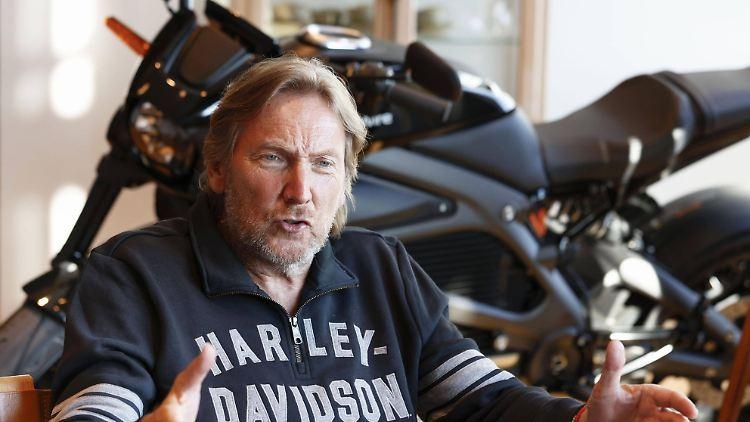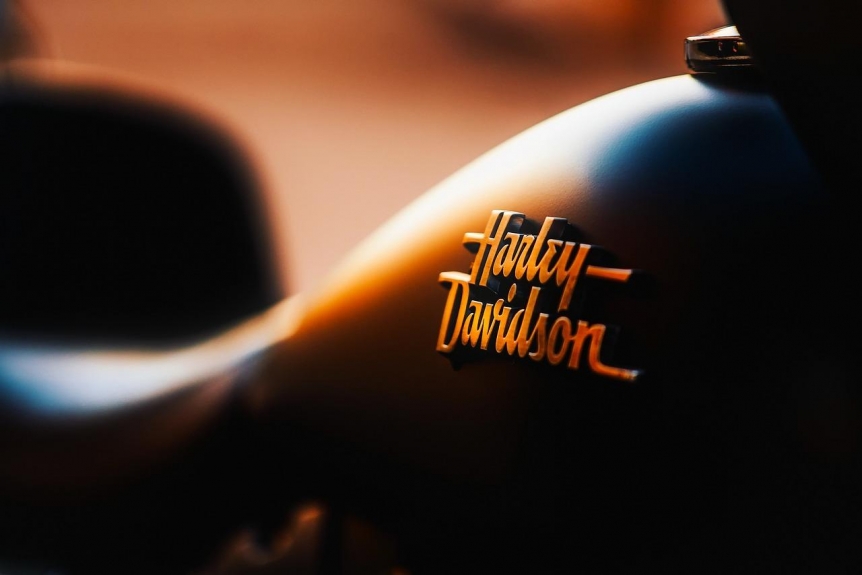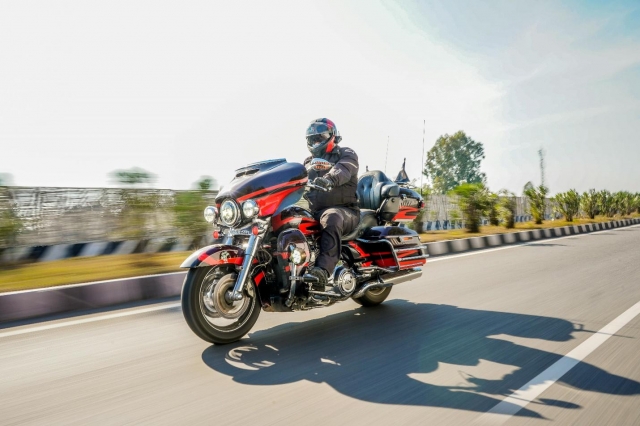Harley-Davidson, a legendary name in American motorcycles, has always been synonymous with ruggedness, independence, and the open road. Known for embodying the spirit of freedom and rebellion, Harley's image has been a cornerstone of the American lifestyle for over a century. However, recent shifts in the company's strategy have ignited debates, especially among its dedicated supporters, regarding whether Harley-Davidson has embraced a "woke" ideology under new leadership.
The discussion reached its peak during the 84th annual Sturgis Motorcycle Rally in August 2023 in Sturgis, South Dakota. This event, celebrated for its traditional values, became a hotbed of dialogue concerning Harley's new direction amidst over 500,000 attendees.
"Critics claim Harley-Davidson abandoned its roots in favor of what they deemed a more "woke" agenda."
The Rebranding Under CEO Jochen Zeitz
At the heart of the controversy is Harley-Davidson's leadership, particularly CEO Jochen Zeitz, who took over in 2020. Under his guidance, the company adopted policies and marketing strategies that some see as a departure from Harley's traditional identity. Critics argue that these changes have moved the company away from its core values, targeting newer, more progressive audiences rather than the loyal bikers who built the brand.
One major point of contention is the company's adoption of diversity, equity, and inclusion (DEI) policies. These initiatives included diversity training and sponsorships of events like Pride celebrations, which angered some long-time customers. Critics claim Harley-Davidson abandoned its roots in favor of what they deemed a more "woke" agenda.
The controversy escalated when conservative activist Robby Starbuck publicly criticized Harley-Davidson's internal policies. He alleged that the company's diversity programs excluded white males from certain training sessions and that its support for left-leaning causes alienated many long-time fans. Starbuck's criticisms gained traction on social media, fueling the conversation around whether Harley-Davidson had "gone woke."
"They killed Harley. It breaks my heart"

Declining Sales and Financial Concerns
The response from many Harley riders has been largely negative. At the Sturgis Rally, bikers expressed their frustration with the company's new direction. Some, like Vinny Terranova, a former Harley-Davidson dealer with over 40 years of experience, accused the brand of abandoning its loyal customer base. Terranova claimed many bikers were switching to Indian Motorcycles, Harley's main rival. "They killed Harley. It breaks my heart," he lamented, comparing the situation to the backlash Bud Light faced after its 2023 partnership with a transgender influencer.
The dissatisfaction extended beyond cultural issues. Harley-Davidson's financial performance has also been criticized. Terranova noted that motorcycles once valued at $30,000 were now being sold for as little as $4,000, citing this as further evidence of the brand's decline. Reports from Harley's Homecoming Festival in Milwaukee in 2023, which saw a 25% drop in attendance compared to the previous year, only added fuel to the fire. Additionally, the company's decision to replace its iconic orange-and-black shield logo with a minimalist design angered long-time fans.
"Terranova noted that motorcycles once valued at $30,000 were now being sold for as little as $4,000"
Corporate Response to the Criticism
Harley-Davidson Adjusts Course In response to the rising tide of criticism, Harley-Davidson made a significant shift in its messaging and internal policies. On August 19, 2023, the company released a statement clarifying its position on DEI and related programs. The statement acknowledged that while diversity is important, the company had not operated a DEI function since April 2024 and no longer had hiring quotas or diversity-related spending goals.
Harley also announced it would be reassessing its employee training programs and sponsorships, signaling a move away from policies that had caused backlash among its core customers. Harley-Davidson's leadership emphasized that the company would return its focus to the sport of motorcycling and strengthen its relationship with loyal riders, including first responders, veterans, and military members. The statement aimed to reassure disillusioned fans that the brand was committed to retaining its traditional values.
Nonetheless, despite these attempts to realign, some critics continued to express doubt. Jesse Clay, a former U.S. Navy SEAL and long-time Harley enthusiast, acknowledged the company's statement but raised concerns about why the brand had shifted in the first place. “Let's see what actually happens,” he noted, reflecting the uncertainty shared by many within the Harley community.
Robby Starbuck's Role in the Public Debate
The Role of Robby Starbuck Robby Starbuck, whose criticisms ignited much of the public backlash, saw Harley-Davidson's policy shift as a victory. “Corporations can't ignore our movement anymore,” Starbuck said in an interview with Fox News Digital. He believed that his social media campaign had forced Harley-Davidson to backtrack on its “woke” agenda, claiming that his movement had previously succeeded in driving changes at companies like John Deere and Tractor Supply Co.
Despite Harley-Davidson's official response, Starbuck persisted in advocating for further changes, notably demanding the ousting of Jochen Zeitz as CEO. Starbuck argued that Zeitz's progressive outlook was misaligned with the values of Harley's long-standing customer base, which has been instrumental to the company's success for more than a century.

The Divide: "Woke" or Modern Survival?
As Harley-Davidson finds itself at a cultural and corporate crossroads, a critical question arises: has the brand genuinely "gone woke"? The answer largely hinges on individual viewpoints. For many long-time riders, especially those who have embraced the brand's rebellious, countercultural identity over the decades, Harley's recent actions seem to signal a shift towards progressive values that feel at odds with the brand's foundational spirit. These riders perceive the company's commitment to DEI initiatives and support for LGBTQ+ events as signs that Harley has deviated too far from its origins. Nonetheless, despite some dissatisfaction, many enthusiasts remain loyal to their Harleys and continue to customize their bikes with custom parts that reflect their personal style, which is an integral aspect of the riding experience.
Conversely, others argue that Harley's efforts to adapt to contemporary societal changes are essential for the brand's longevity in an evolving market. With the motorcycle industry contracting, appealing to a wider and more diverse audience may be crucial for Harley's relevance in the future.
Conclusion: Does Harley-Davidson's Struggle to Balance Tradition and Modernity?
Harley-Davidson's recent controversies have highlighted the struggle between tradition and modernity that many established brands encounter today. As the company reassesses its internal policies and marketing approaches, it must strike a balance between keeping its devoted fan base and attracting new riders who may have different perspectives.
The latest statement from the company indicates that it is trying to bridge this gap by reconnecting with its heritage; however, whether these initiatives will be sufficient to appease critics is still uncertain. For the moment, Harley-Davidson's navigation through this cultural upheaval is far from complete. Only time will reveal if the brand can successfully return to the course that established it as a symbol of American freedom and independence.






